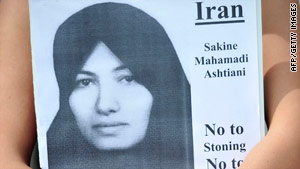By B Nantha Kumar
KUALA LUMPUR: Prime Minister Najib Tun Razak has instructed the Kuala Lumpur City Hall (DBKL) to postpone its demolition of houses in Bukit Jalil until an amicable solution is reached.
Yesterday, the former estate workers had submitted a memorandum to the PM's Office, asking for more time to consider the new offer from DBKL.
Contacted this afternoon, Federal Territories and Urban Well-being Deputy Minister M Saravanan confirmed the matter.
He said Najib, who is currently overseas, had called his boss Raja Nong Chik Raja Zainal Abidin yesterday and told the minister to defer the demolition.
"We have been instructed to find a way to solve this issue first. The PM wants whatever is owed to the people to be settled first. DBKL is also postponing all notices it had sent to the 41 families.
"A meeting will be called next week. It will be attended by the workers' representatives, the National Union of Plantation Workers, Human Resources Ministry and my ministry,” he said.
"This meeting is to find a way to solve not only the housing problem but to ensure whatever owed to the people is paid accordingly. So far we have termed them as squatters. This will also be rectified. They are former estate workers and and not squatters," he told FMT.
Saravanan said previous meetings did not include his ministry, which is the enforcing body.
Unclear terms, bank loans
On July 20, the 41 families were slapped with an eviction notice. The deadline expired on Monday and demolition works were supposed to have started the next day.
The residents, however, vowed to put up a fight even if it meant facing the police's anti-riot personnel.
Following this, DBKL offered the residents a RM80,000 flat unit each for the discounted price of RM35,000 and gave them three-days to make a decision. This deadline expires on Friday midnight.
However, the workers contended that the terms of the offer were unclear and that they would face problems in obtaining bank loans to purchase the new houses.
They also wanted compensation, which was not paid to them by the new owner of the land, whose identity remains unknown although there were speculations of a former minister being involved.
DBKL has said that the land would be turned into a cemetary, which the residents claim is untrue.
Part of the estate was acquired by the government for the construction of the Bukit Jalil sports complex, while other parts were sold to private buyers.
The dilemma of the 41 families had gone on for nearly three decades now and most of the original estate workers had passed away and their place taken by their next of kin.
KUALA LUMPUR: Prime Minister Najib Tun Razak has instructed the Kuala Lumpur City Hall (DBKL) to postpone its demolition of houses in Bukit Jalil until an amicable solution is reached.
Yesterday, the former estate workers had submitted a memorandum to the PM's Office, asking for more time to consider the new offer from DBKL.
Contacted this afternoon, Federal Territories and Urban Well-being Deputy Minister M Saravanan confirmed the matter.
He said Najib, who is currently overseas, had called his boss Raja Nong Chik Raja Zainal Abidin yesterday and told the minister to defer the demolition.
"We have been instructed to find a way to solve this issue first. The PM wants whatever is owed to the people to be settled first. DBKL is also postponing all notices it had sent to the 41 families.
"A meeting will be called next week. It will be attended by the workers' representatives, the National Union of Plantation Workers, Human Resources Ministry and my ministry,” he said.
"This meeting is to find a way to solve not only the housing problem but to ensure whatever owed to the people is paid accordingly. So far we have termed them as squatters. This will also be rectified. They are former estate workers and and not squatters," he told FMT.
Saravanan said previous meetings did not include his ministry, which is the enforcing body.
Unclear terms, bank loans
On July 20, the 41 families were slapped with an eviction notice. The deadline expired on Monday and demolition works were supposed to have started the next day.
The residents, however, vowed to put up a fight even if it meant facing the police's anti-riot personnel.
Following this, DBKL offered the residents a RM80,000 flat unit each for the discounted price of RM35,000 and gave them three-days to make a decision. This deadline expires on Friday midnight.
However, the workers contended that the terms of the offer were unclear and that they would face problems in obtaining bank loans to purchase the new houses.
They also wanted compensation, which was not paid to them by the new owner of the land, whose identity remains unknown although there were speculations of a former minister being involved.
DBKL has said that the land would be turned into a cemetary, which the residents claim is untrue.
Part of the estate was acquired by the government for the construction of the Bukit Jalil sports complex, while other parts were sold to private buyers.
The dilemma of the 41 families had gone on for nearly three decades now and most of the original estate workers had passed away and their place taken by their next of kin.








 By Patrick Lee - Free Malaysia Today
By Patrick Lee - Free Malaysia Today Speaking to reporters after filing the report, KP Samy said: "Ling was charged because he caused losses to the government. Likewise, Samy Vellu brought losses to the Indian community."
Speaking to reporters after filing the report, KP Samy said: "Ling was charged because he caused losses to the government. Likewise, Samy Vellu brought losses to the Indian community." Among the accusations made in today's report were that the MIC president had made rampant withdrawals from MIED accounts, and awarded contracts at inflated costs to many of his associates.
Among the accusations made in today's report were that the MIC president had made rampant withdrawals from MIED accounts, and awarded contracts at inflated costs to many of his associates. million but on the insistence of Samy Vellu, a total of RM31 million was paid to Nova Blossoms till November 2008,” it said.
million but on the insistence of Samy Vellu, a total of RM31 million was paid to Nova Blossoms till November 2008,” it said.
 (Malaysiakini) Exhaustive secret 2007 cabinet memo details approval of billions in loans for ill-starred port project
(Malaysiakini) Exhaustive secret 2007 cabinet memo details approval of billions in loans for ill-starred port project